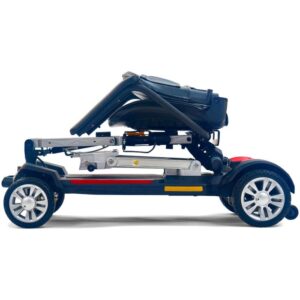When you opt to scrap car in Singapore, it has to be lawfully scrapped with a government recognised scrap car agent. At their scrapyard, the vehicle has all dangerous components taken out and parts that can be recycled recovered before it is crushed and recycled.
Farewell old fashion scrap yard
The old days of sending your automobile to the scrap yard where it spent years rotting are long gone. Now automobiles are no longer left dripping toxic fluids into the soil before being crushed into little cubes and place into garbage dump.
Welcome new systematic scrap car processes
Fortunately, we’re coming to be more aware of the influence the things we make and utilize have on the environment. And that includes what we drive. Automobile recycling is now an important part of the motoring process. Here’s what it includes and the lengths the market takes to reprocess your automobile.
By weight, cars are approximately 75 percent metal, 25 per cent liquids, plastics, textiles and rubber. The first thing a scrap car dealer does is to drain all of a vehicle’s fluids and remove the battery and wheels. Some scrapyards will remove and segment parts that they resell as spare parts.
The harmful products are removed in the initial stage of the Automobile Depollution Procedure. The lead-acid battery is detached first, as vehicle batteries contain materials that can be dangerous to the environment.
Tyres
Next, the car’s tires are taken off and recycled at a professional reprocessing centre although only a particular amount can be kept on site at any one-time. This is because great deals of tyres can melt for days at extremely high temperatures if they ignite.
Fuel and gases
Liquid Petroleum Gas (LPG) gas containers are hazardous and they are disposed of with air bags to comply with– these have the ability to blow up as a result of the substances they contain in them– as are safety belt pre-tensioners, which are also displaced at this point.
All of the car’s fuel, oils– consisting of the oil filter– coolants, anti-freeze, and any other fluids that are regarded hazardous will be discarded next, as any one of these can contaminate the dirt and pollute the supply of water if not extracted correctly.
Filtering recyclable items
A vacuum divides the lighter products such as foam, rubber and plastics for recycling. Formerly scrap yards would have just sent them to land fill.
The remaining metal and heavier plastics are then divided. Plastics make up approximately 10 per cent of our automobiles by mass. These used to go to landfill yet they can now be broken down to their foundation chemicals and converted into pellets. Industries re-use these to make new products.
Ferrous and non-ferrous metals are resmelted, windowpane glass ends up as aggregate for the construction market, and foams and certain plastics go through a process called gasification to generate electrical power.





